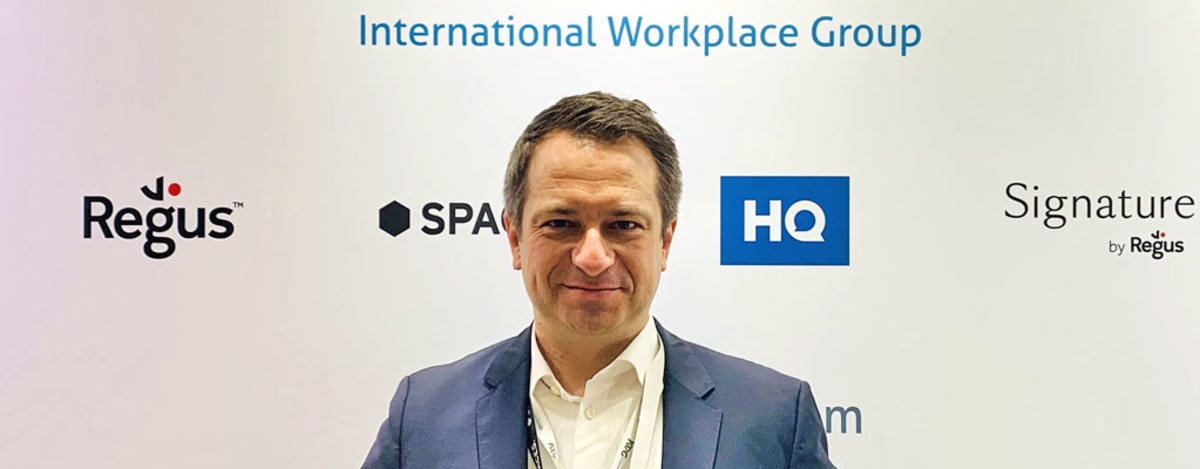To say that 2020 has been a challenging year for business is something of an understatement. The pandemic has made a huge impact on many of the world’s economies and the future continues to look uncertain. However, not everyone is frowning. Those who decided to invest in IWG’s franchise programme are seeing impressive growth.
Germany in particular is riding high on the increased demand for flexible office solutions. So far this year, franchise partners have signed agreements committing to the development of 10 new centres across the country.
Covid-19 as a catalyst
Marco Wild, IWG Franchise Director for Germany, Austria, Denmark and Sweden, says the year has been a success overall and, despite a dip in the spring, the last few months have seen interest from potential partners come back strongly.
“The Covid-19 pandemic has not changed the fundamental growth drivers of the flexible office industry,” he explains. “It was more like a catalyst that increased the speed of the market development. Ultimately, IWG is the only global player in this field, offering a franchise model that is highly attractive to investors and potential partners.”
He says that this is especially true now that the usual franchise concepts, such as food services and hospitality (sectors which were previously seen as bulletproof), have ended up incredibly vulnerable during the crisis. IWG’s business model, on the other hand, has been stable throughout the pandemic and Wild believes that is part of the reason why it has seen growth in its franchise development.
Suburban appeal
But why Germany? Wild says the country still benefits from a comparably strong economy, and from investors looking for attractive returns, as well as an enviable number of ‘green fields’ – cities or areas that haven’t yet been developed by IWG, but which show attractive market potential and are therefore available for existing franchise partners and those thinking of becoming franchisees.
In particular there has been a significant increase in demand for the development of centres in suburban areas and medium to small cities, with demand decreasing in larger cities and central locations. This effect can be seen across the whole country and is not limited to specific areas.
While this trend existed before the pandemic, Wild believes more and more employees want to work closer to home as a result of the pandemic, as they are eager to avoid busy commutes and crowded offices. At the same time, companies are looking to reduce the costs of running underused traditional office spaces.
“We are optimistic for our industry,” he says. The way people work has changed permanently in our view. In today's digital world, people have been able to quickly adapt to home working or working closer to home, alongside the significant environmental and cost benefits this brings.
Head offices will still have an important role to play in the world of work, he adds. “We therefore believe that the future will be hybrid working, utilising a combination of all these ways of working. Hybrid working will gain momentum and requires flexible workspace solutions to deliver this successfully.”
A promising future
Germany’s boom in IWG franchises looks set to continue into next year, with Wild predicting even bigger growth, again fuelled from developments in suburban areas and smaller cities. He claims the increased interest IWG has already seen from the middle of the year suggests there will be more franchise agreements, developments and commitments in 2021.
And what of the flexible workspace sector in general? In 2019, it was predicted that by 2030, 30% of all commercial real estate will be flexible workspace, while flexible working will be worth more than £8trn to the economies of 16 leading countries alone. After the events of 2020, do these figures and predictions still hold up?
“It’s hard to foresee, but I assume it will continue to develop in that direction,” Wild says. “There will be no real change in the fundamental patterns of this trend. It’s not unrealistic to predict that it might be more than 30% if more large companies begin shrinking their central headquarters and send more and more employees to new office solutions. There’s no way we will be moving back to the traditional working model.”
With that in mind, Wild feels overwhelmingly positive about the success of German IWG franchises in 2021. He explains: “Of course, we want to see much higher growth in terms of new franchise agreements that we sign. At the same time, we want to make sure that the franchise partners who are opening the new centres are successful with their ventures. So, it’s not just about signing franchise agreements and getting the centre open – we also want to make sure that franchisees get world-class support from us, so that they are able to find financial success and expand their business with us.”
With its robust business model in uncertain times, plentiful development areas, attractive financial model and the chance to be part of the global market leader with unparalleled experience, coverage and world-class support, investing in an IWG flexspace franchise in Germany seems like a no-brainer.
Looking for your next investment? Learn more about IWG’s franchise partnerships






